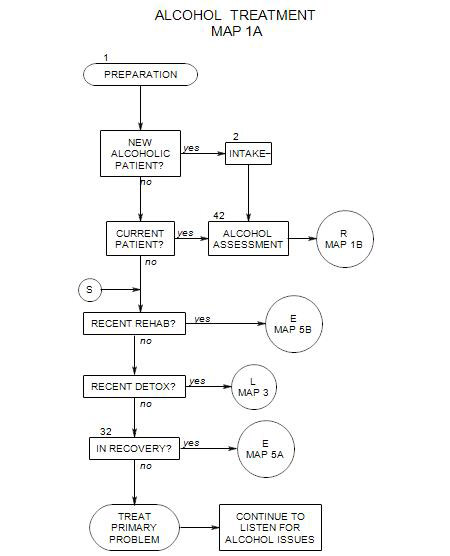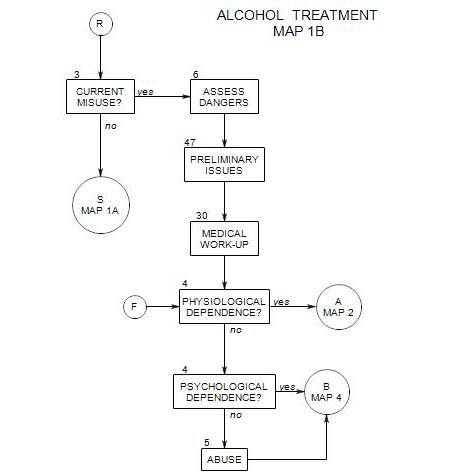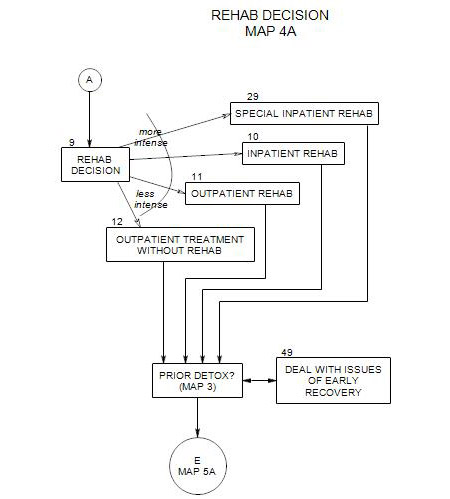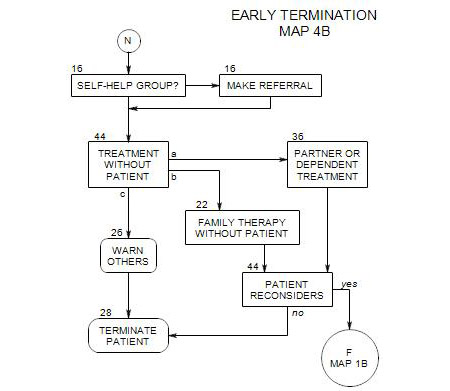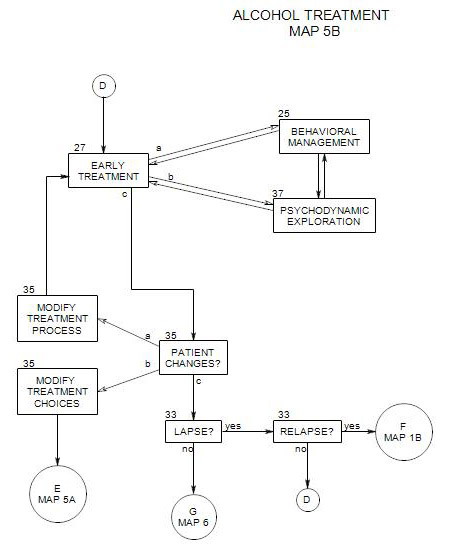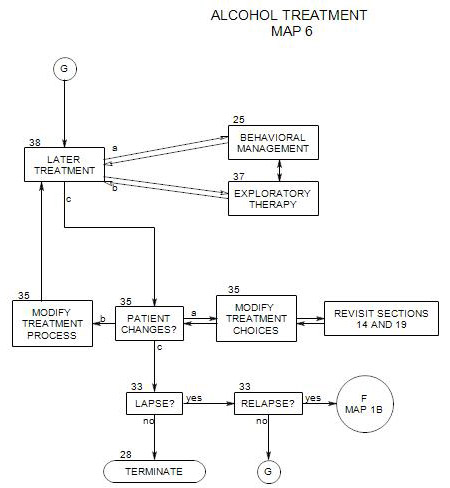10. INPATIENT REHABILITATION
- This section follows Level of Care Decision, Section 9
In inpatient rehabilitation, the patient is maintained in a hospital-like setting, for a variable period of time, depending on the nature of the facility and the patient’s need and ability to pay. A stay of 1-3 months is generally most effective, but may be limited by the patient’s insurance. The treatment plan can also be affected by a patient’s need for initial detoxification [ Section 7 ].
The treatment routine is very structured, including daily group therapy, daily AA meetings, an alcohol education series, nutritional counseling, a medical work-up, recreation, and possibly individual psychotherapy.
Patients are often asked to keep a diary or journal, as an aid to treatment.
Family contact is attempted immediately. However, family/marital treatment usually occurs later in the treatment (the third week, in a 28-day stay), when the patient has been detoxed and is somewhat stabilized. This is a prelude to discharge planning.
If possible you can get a release from your patient before s/he leaves for the hospital, then contact the intake staff as soon as possible after s/he gets there. If not, the staff may arrange to obtain a release to talk with you. Then you can let them know that the patient was seeing you for outpatient treatment prior to intake, that you are prepared to keep in contact with him/her by telephone while s/he is there, and that you are available to see him/her again upon discharge. When hospital staff are not available for individual treatment, it may be possible for you to have regular phone sessions while s/he is there.
Upon discharge, a patient may be sent to outpatient rehab or returned to daily life, depending on the judgment of the hospital staff regarding need, finances, etc., and the patient’s preferences.
